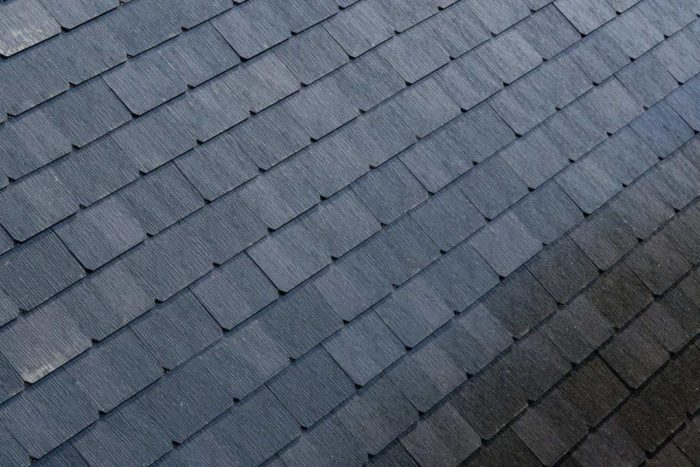
Image Credit: Tesla
Tesla has started manufacturing its long-awaited photovoltaic (PV) roofing tiles at a new factory in Buffalo, New York, and customers who plunked down $1,000 deposits last year could start to see their new roofs in the next few months, Reuters reported.
The roof tiles come in four versions, all with a tempered glass top surface that conceal solar cells. Tiles can be made to look like slate and clay tile, and also come with a smooth or textured surface. Tesla pitched the product to homeowners who wanted the benefits of solar energy but didn’t want to look at conventional panels and racks.
Tesla originally hoped to be installing solar roofs last summer, and the company began taking $1,000 deposits last May. But until now installations have been limited to a dozen or more employees, including CEO Elon Musk and Chief Technical Officer JB Straubel, who got them as part of a pilot program last year.
The company has not disclosed how many orders it’s taken for the tiles, but Reuters says Tesla has started surveying the homes of customers who put in orders and should be starting to install the roofs in the next few months.
The website Futurism said potential customers have been limited to the smooth or textured glass tiles to date, with the tile and slate versions to be available later this year.
Early versions of the tile were made at a plant in Fremont, California, but the company has now transferred production to its “Gigafactory 2” in Buffalo. The tiles are being made at in a partnership with Panasonic Corporation.
Eventually, the company wants to produce PV panels with a combined capacity of 2 gigawatts per year. There are some 500 employees working in the plant now, far fewer than Tesla will need to employ in order to meet terms of a deal with the state of New York. According to a post at Greentech Media, New York committed $750 million to the 1.2 million-square-foot plant as long as Tesla could create more than 1,460 jobs in the Buffalo area by the time it’s fully up to speed.
Tesla has said that a PV roof could cost between 10% and 15% less than a conventional roof plus rack-mounted PV panels. Electrical output would be set by mixing power-producing tiles with identical looking blanks. Customers can order a roof at the company’s website with a refundable $1,000 deposit. A calculator estimates the amount of roof that should be covered with the tiles, how much electricity the roof should generate, and the net cost of the tiles over their 30-year life span.
Weekly Newsletter
Get building science and energy efficiency advice, plus special offers, in your inbox.





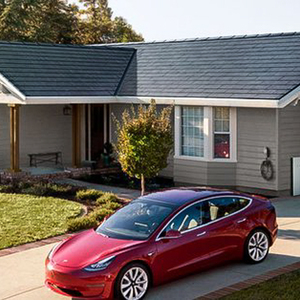
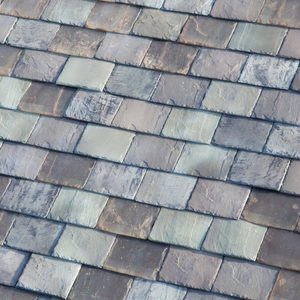
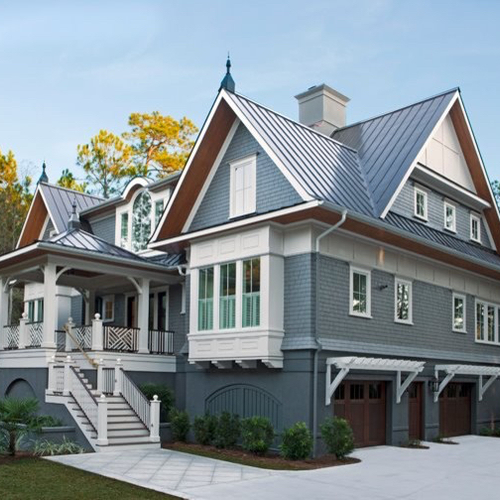
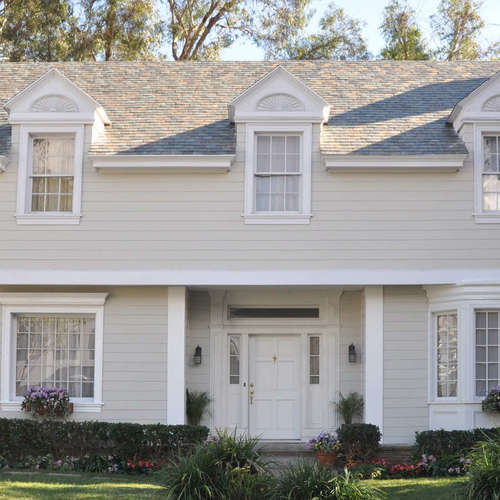


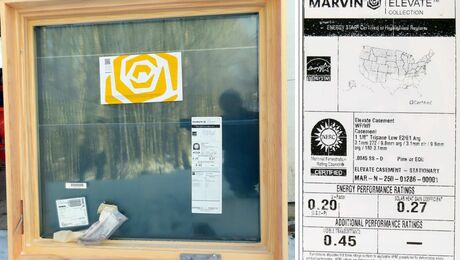



8 Comments
Expensive Luxury Advertised as Otherwise
Why isn't Musk honest and say you could buy at least two conventional shingle roofs with conventional solar panels that are more efficient or one less efficient Tesla solar roof. Like the Hyperloop or his cars, not products that are truly for the greater good, but a modernized luxury for spoiled individuals rather than the good of everyone.
J M
I try to look at Musk, and Tesla, like this:
They want to take money from rich and/or gullible, do with it whatever they do (research), and hopefully, something good and lasting will come out of it.
I like this. if all of his companies fail, does not matter. Some advances will be made, in battery tech especially. In long term, this will be important.
Musk Innovations Are...
What are they - his company built a large battery factory, but economies of scale aren't a new development. He hasn't developed and commercialized a new battery chemistry or more efficient solar panel. The Powerwall systems are cheaper but still don't make economic sense and the Powerwall2 was launched in a scaled back manner with less compatibility than they promised. The Hyperloop is innovation in the wrong way - we need better mass transit (or at the least adequately funded), especially in America. NASA has done great, developed lots of great technologies that changed our lives and yet we cut their funding so Musk and other private companies can lose billions making the same mistakes we've already overcome before. I think that 2 billion the US lost in SpaceX's last launch could have been put to much better use than a private taxpayer financed R&D experiment.
I don't get the hype
A lot of Musk's endeavors are sketchy at best and the PowerWall rollout was just all hype and the Powerwall is nothing like it was supposed to be. SpaceX just lost a $2 billion dollar US spy satellite and Musk is not taking the blame as this will be another black mark on his list of failure to perform.
There are many Musk/Tesla failures, yet many people have this cult-like following for Musk. He has become very wealthy, that is a fact, but his tech hypes are just that, hype. They fall short of what they claimed to be.
Like the above article states, a hyper claim was made about solar roof tiles, cash deposits were taken but so far, failure to perform. All the installs were to Musk employees are trial runs and no delivery yet. What about long term reliability of the tiles and what about repairs? Many guinea pigs are getting in line for this but like SpaceX, I don't want to be the monkey on the rocket when it comes crashing down to earth because it failed.
The Long View
The solar shingle has been a dream of mine since thin film solar was first proposed, 40 years ago. In all this time, despite continued development, the efficiency, durability and aesthetic nuts have yet to be cracked. Tesla's traditional high-efficiency crystalline cell under glass is the first system to adequately address durability and efficiency. It knocks aesthetics out of the park. The technology, while basic, is inherently expensive, but as a toy for the rich, it makes more sense than Passiv Haus. On the other end of the economic spectrum, Musk has not abandoned the conventional solar array. Solar City pioneered the leased system that allows individuals the benefit of solar with no out of pocket expense.
If new battery and solar technologies were horses, beggars would ride. Commercialization is far more difficult than basic research. For instance, increased energy density is fine until your phone caches fire. Right now we don't need a new battery; we need one that is cheaper and safe.
Musk did not invent the rocket, but he's the first to make one that returns to earth to be reused. This has the potential to slash the cost of getting stuff into space an order of magnitude or more, making economically feasible the thousands of satellites necessary for truly universal high speed internet.
Elon Musk's genius is addressing the most important issues of our day by solving each little problem as it arises, while asking no favors not available to his competitors. He has basically bet his fortune on the Model 3 and could lose everything if it is not an economic success. Its only rival is the Chevy Bolt. GM loses thousands on each one and can pull the plug at any time with barely a blip to its bottom line.
The rooftop solar industry is dependent on electric utilities providing net metering, which they believe is against their interests. As long as few customers use it, they endure for the positive public relations. However, when too many consumers have solar, they balk as they are now doing in Hawaii and Nevada. The only way out I see for consumers depends on rooftop solar, home energy storage and the electric car. When Michigan eventually kills net metering, I intend to be living off-grid in a high efficiency home with solar and storage. On the rare occasion when the sun can't keep up, I'll send my self driving electric car to a public charging station to return home and supply power to the house. Elon Musk is critical to creating the world I want to live in.
Douglas Higden
Response to Douglas Higden
Douglas,
Somehow, I don't think I'll live long enough to see the day when I can send my car to town to go get some electricity. But there is no harm in dreaming.
Since I live off-grid, I know about roads in rural areas. That self-driving electric car would have to tackle a dirt road (without any white stripes) that is covered by drifting snow for 6 months of the year, with occasional branches and limbs blocking the road (which is why it's handy to keep a bow saw or a chainsaw in your vehicle). But hey -- maybe Google will invent a 4-wheel-drive self-driving car that can find the road in a snow storm, and can stop when necessary to drag branches to the shoulder -- some day.
Musk is a marketing genius
and has done an extraordinary job of successfully attacking real problems with functional solutions. I am not a stockholder (and the stock looks like a great short, but lots of people have lost their shorts betting against Tesla stock so far)... but an objective bystander would have to agree that
- Tesla/Musk proved that a mainstream electric car is possible; before the Model S, it simply didn't exist;
- Musk/Solar City did an amazing job (at great financial risk) of making residential solar a mass market;
- PowerWall is, like Apple phones, an elegant aesthetic to an otherwise mundane product. Yes, there are cheaper ways to store solar energy, but let's face it: the PowerWall is sexy and simple for consumers to understand, and some form of storage is key to efficient long term use of solar energy.
- even the Boring Company is at least AN answer to a problem that no one else is working on: urban traffic congestion is a soul-sucking drag on economies, the environment, and urban life. Why not tunnels under, say, San Francisco... the LA basins; Manhattan; the 75/85 mess in Atlanta... and probably 100 other urban nightmares around the country?
JM's argument that you could buy 2 fiberglas shingle roofs, plus solar panels for one roof, for the price of Tesla's solar roof is specious: you could say that about any concrete tile/slate/true standing seam metal roof too. I'd much rather have a solar tile roof than a non-solar tile roof (just like I'm rooting for the vaporware Forward Solar metal roof) ... but comparing the cost of either type of roof to a composite shingle roof isn't meaningful.
I am not a fan of Musk's hype, or the missed delivery dates, or the ethically questionable marketing practices that seem to accompany every new Tesla feature or product... but I admire the energy and genuine innovation that he and his companies have applied to some important problems.
I just wish his businesses were more transparent about their current state; the radio silence on the roof tiles is infuriating to someone who really wants to know whether these tiles are what's been promised: a great looking roof that happens to generate enough power to mitigate the expense. Unfortunately, this article wasn't much help.
Space X and lost satellite. While I've never been a
particular fan of Musk I must say that the Space X booster rocket performed as designed but the capsule, built by Northrop Grumman, which contained the satellite appears to have been the source of the failure.
Log in or create an account to post a comment.
Sign up Log in